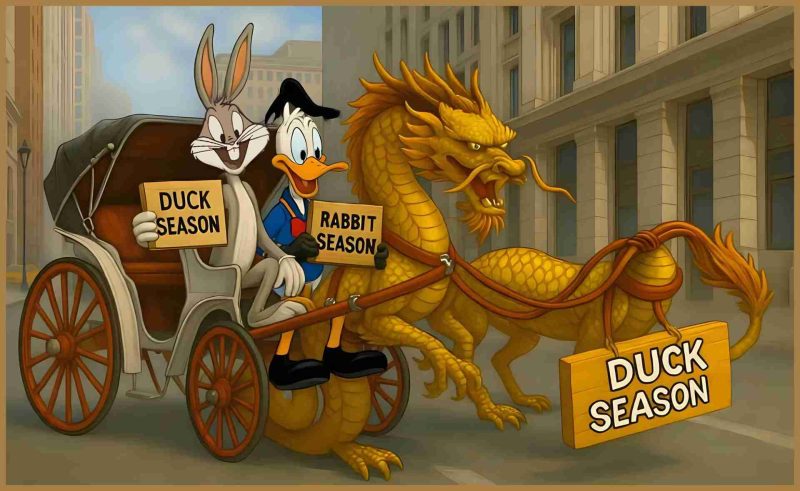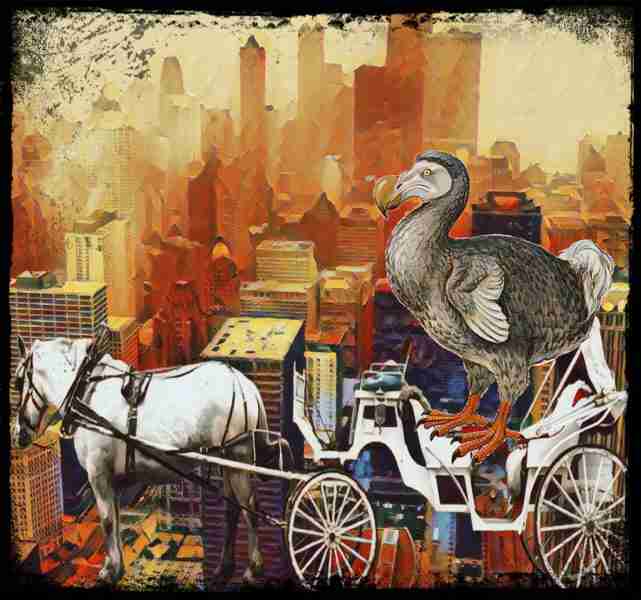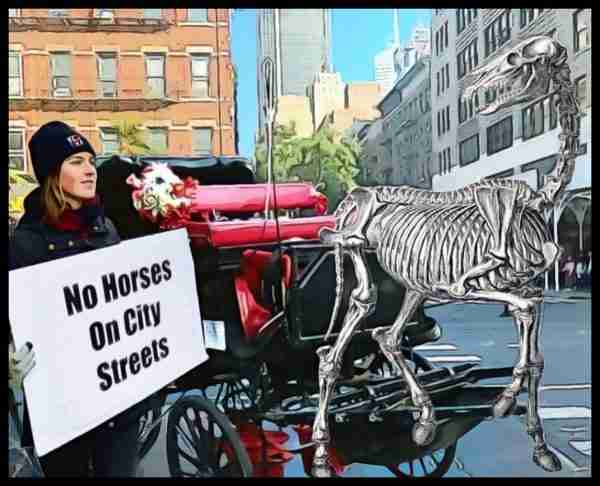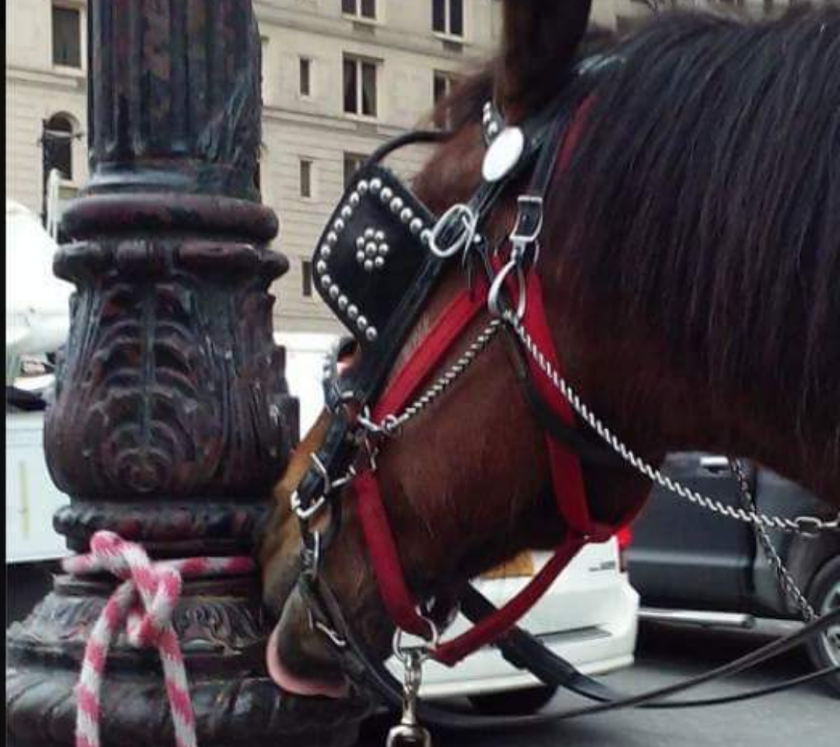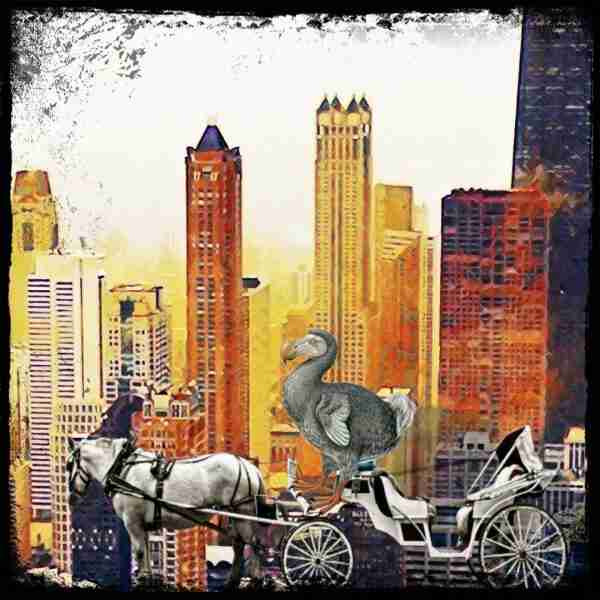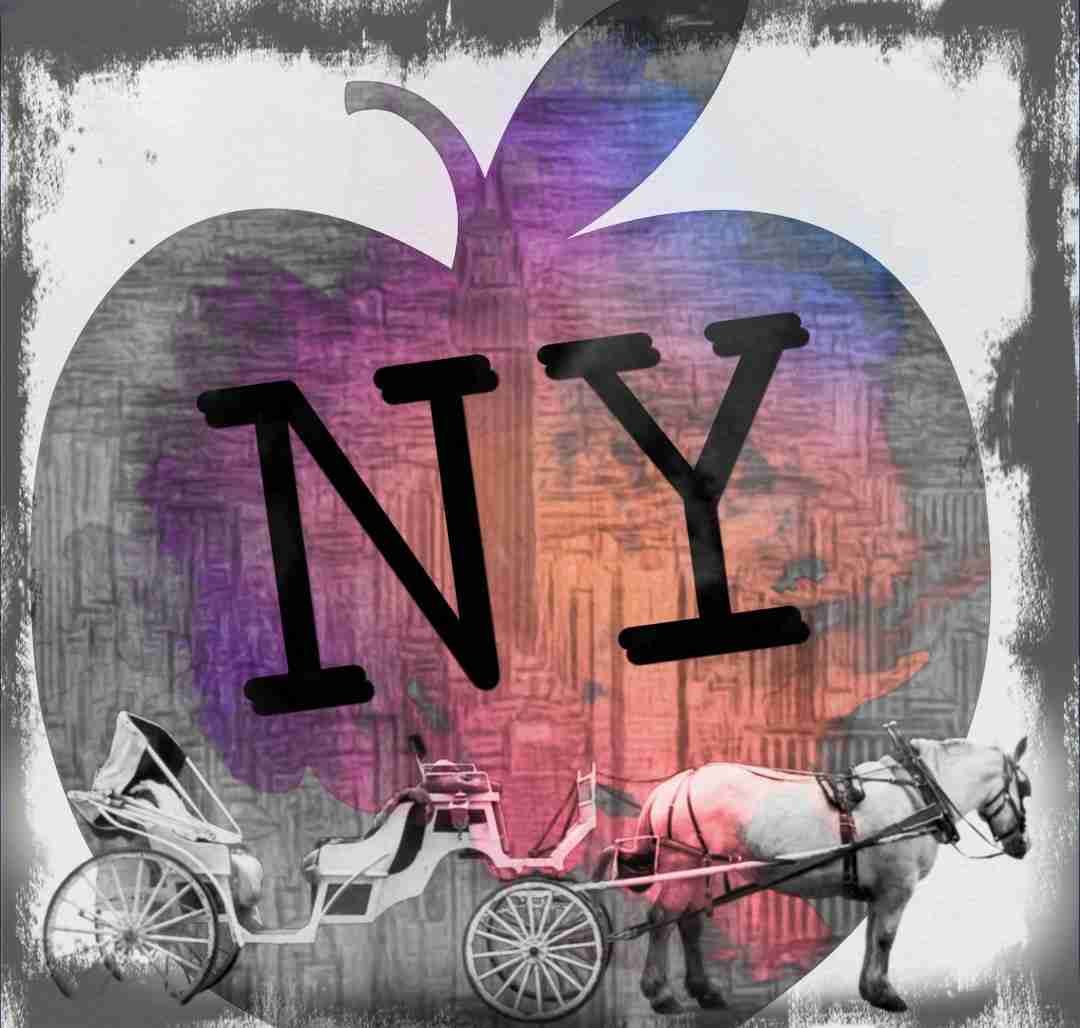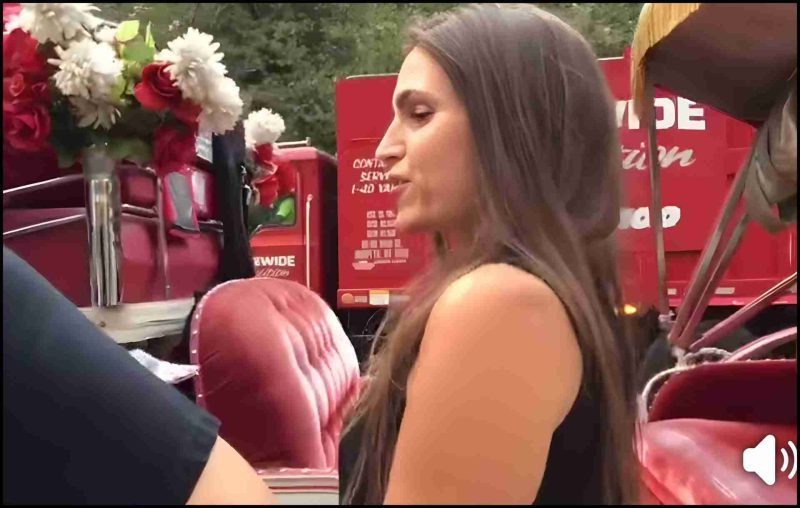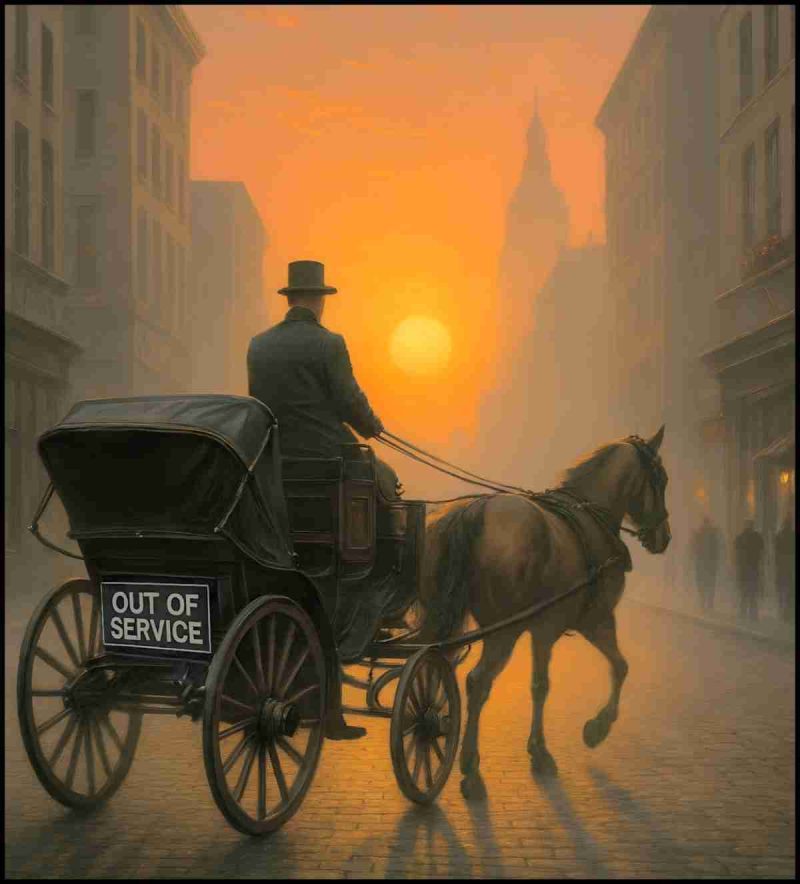
(Beth Clifton collage)New York City council health committee vote kills “Ryder’s Law,” but not the issue
NEW YORK, N.Y.––If Chinese dictator Mao Zedong (1893-1976) was correct in his admonition that “Dragons and dying empires lash hardest in their death throes,” either the New York City horse-drawn carriage industry or activism against it may be just about done for.
But not before the alleged dragons on either side of the issue devour the lame duck New York city council members who on November 14, 2025 voted to kill “Ryder’s Law.”
“Ryder’s Law,” named after a carriage horse who collapsed in the street at 45th and 9th in Midtown Manhattan on August 10, 2022, was the latest incarnation of a long series of bills seeking to exclude horse-drawn carriages from operating in and around Central Park, a New York City animal advocacy cause celebre at least since 1989, when horse-drawn carriages were first restricted to the Central Park neighborhood.
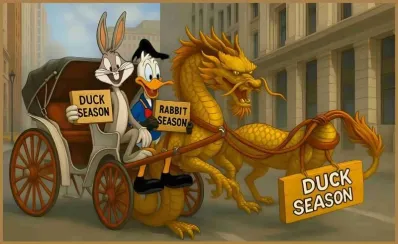
(Beth Clifton collage)Who is the dragon?
The proposed horse-drawn carriage bans were initially opposed by the New York Horse & Carriage Association, representing the owners of 68 carriages, but more recently and more influentially by the Transport Workers Union, representing nearly 200 horse-drawn carriage owners and drivers, among approximately 41,000 transport workers altogether in New York City Local 100.
To opponents of horse-drawn carriages operating in and around Central Park, the Transport Workers Union is the dragon, breathing fire from atop stacks of gold in the form of fares and tips from carriage riders, believed to be mostly tourists.
To the horse-drawn carriage owners and drivers, anti-horse-drawn carriage activists are the dragon, threatening their livelihoods.
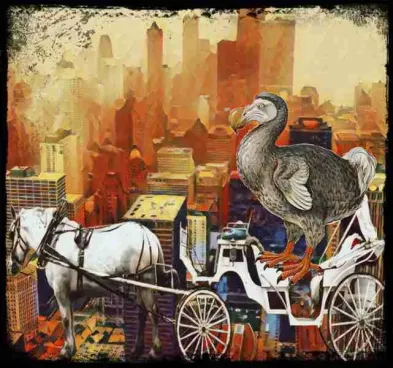
(Beth Clifton collage)Only one vote in favor
The death of “Ryder’s Law,” opined New York Daily News writers Chris Sommerfeldt and Evan Simko-Bednarski after the New York city council health committee killed the most recent attempt to advance the bill, “cast doubt over the future of the long-running push to abolish the industry.
“The bill,” Sommerfeldt and Simko-Bednarski reported, “introduced by outgoing Queens Councilman Bob Holden, was defeated after only one committee member,” Brooklyn representative Simcha Felder,” voted in favor of it. Four members voted against it and two abstained, while two others didn’t show up.”
This, Sommerfeldt and Simko-Bednarski explained, “means the measure is effectively dead on the vine and won’t advance to a full Council vote.”
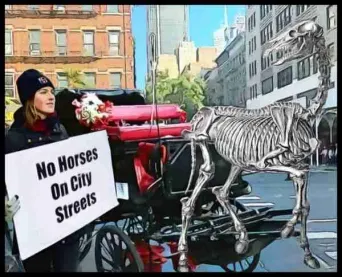
(Beth Clifton collage)All city council issues are dead issues for the moment
But practically every item of new legislation left before the New York city council is effectively dead at this point. A new council, elected on November 4, 2025, will take office on January 1, 2026.
City council speaker Adrienne Adams, who “for months refused Holden’s demands to consider his horse carriage ban bill for a hearing or a vote,” Sommerfeldt and Simko-Bednarski mentioned, has been term-limited out of office, along with Holden.
Already exiting the debate was former New York City mayor Eric Adams, who took office in 2022, did nothing to promote a horse-drawn carriage ban during most of his tenure, then announced his support for a ban just eleven days before abandoning his campaign for re-election on September 28, 2025.
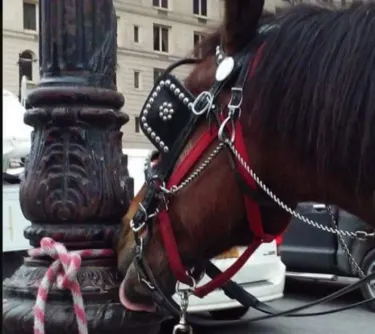
(Coalition to Ban Horse-Drawn Carriages photo)The beat goes on
Benjamin Fang-Estrada, representing Adrienne Adams, told Sommerfeldt and Simko-Bednarski that “Ryder’s Law” failed, Sommerfeldt and Simko-Bednarski paraphrased, “because Holden didn’t work enough on building support for it.”
“To successfully advance a bill,” said Fang-Estrada, “requires a lead sponsor to do the legislative work of building support with colleagues and collaborating with stakeholders to bring people of different views together to advance solutions.”
But that has not happened yet, in 37 years.
Meanwhile, Sommerfeldt and Simko-Bednarski continued, “Transit Workers Union members — as well as animal rights activists — showed up in force” to the hearing preceding the city council health committee vote, “with the council having to set up three overflow rooms in order to accommodate everyone.

(Beth Clifton collage)Electric carriages’ day came & went
“Mayor-elect Zohran Mamdani,” Sommerfeldt and Simko-Bednarski noted, “has voiced support for banning the industry, though he says he wants to engage in dialogue with the Transit Workers Union to figure out a compromise on how the drivers can find similar jobs, potentially by getting electric carriages.”
That idea, though, proposed in 2019 when electric vehicles were still a relative novelty, long ago shorted out. With more than 25,000 electric vehicles now on the New York City streets every day, chances are good that one will be stopped at any traffic light a Central Park goer uses to get there.
“The next New York City council will likely need to introduce a new bill similar to Holden’s and start the process from scratch in order to get a ban enacted,” Sommerfeldt and Simko-Bednarski said.
That will require finding a council member willing to become the new flag-bearer for a horse-drawn carriage ban, and to work to advance it.
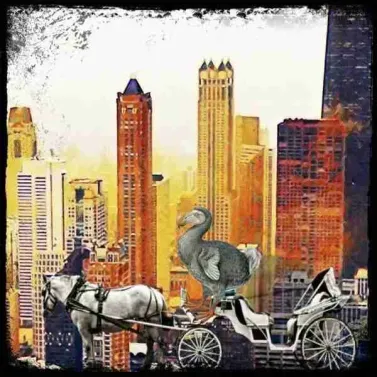
(Beth Clifton collage)Activists respond
Voters For Animal Rights in a media statement pronounced itself “deeply disappointed by the New York City Council’s decision not to advance ‘Ryder’s Law,’ legislation that would phase out the horse carriage industry and retire the horses to sanctuaries.
“By choosing not to move this bill forward,” Voters for Animal Rights said, “the council has delayed the conversations necessary to create a safer, more compassionate city for both people and horses.”
Fumed a People for the Ethical Treatment of Animals [PETA] media statement, “More than 75% of New Yorkers want horse-drawn carriages off city streets, yet the carriage industry is resorting to dirty tricks to prop up this dying trade and keep exhausted horses suffering through sweltering summers and windy winters.”
This begs the question of how many fare-paying clients opt for open-air carriage rides in “sweltering summers and windy winters,” instead of waiting for decent weather.
“We’re confident that with compassionate council members already committed to reintroducing the bill next term,” PETA said, not naming any names of said compassionate council members, “the question isn’t if New York will ban horse-drawn carriages—it’s WHEN.’
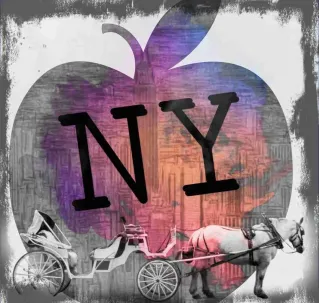
(Beth Clifton collage)SLAPP suit against NYCLASS
Meanwhile, Simko-Bednarski reported on November 10, 2025, four days before the New York city council health committee vote, “The Transport Workers Union had filed suit against New Yorkers for Clean Livable and Safe Streets — NYCLASS — in New York Supreme Court,” actually the lowest level of the New York state court system, “alleging the group knowingly spreads false claims in an effort to build support for a ban carriage horses.”
Charged the lawsuit, “NYCLASS has used unlawful means, including, but not limited to, misrepresentation to the public and third parties, and/or acted with the purpose of harming the carriage drivers and their business, under the pretense of animal rights.”
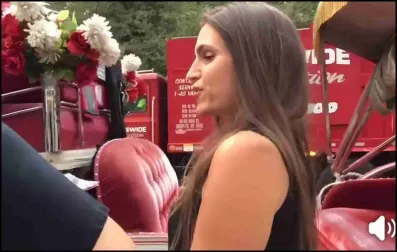
(Facebook photo)Claims about dead carriage horses
Summarized Simko-Bednarski, “The Transit Workers Union identifies two instances in which the union alleges NYCLASS claimed dead carriage horses had been abused despite autopsy reports finding they died of natural causes.
“The suit references the death of a 15-year-old carriage horse named Lady, who collapsed and died on the street in August while returning to her stable in Hell’s Kitchen.
“A necropsy report prepared by Cornell University’s Animal Health Diagnostic Center and attached as an exhibit to the lawsuit states that Lady died from an aortic rupture likely related to hypertension caused by a small tumor on the horse’s adrenal gland.
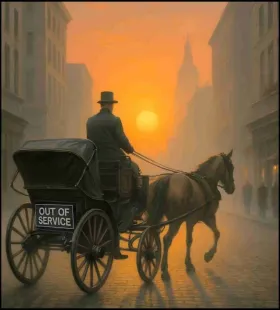
(Beth Clifton collage)NYCLASS responds
“The union goes on to argue that NYCLASS ‘did the same thing’ in 2020,” Simko-Bednarski narrated, “when a horse named Aysha collapsed on the street and was later euthanized. Health Department records indicate the horse was ‘in good health prior to her death,’ the suit claims, but “despite all of the well-documented information released regarding Aysha, NYCLASS spread and continues to maliciously misrepresent Aysha’s tragic death for its unlawful interference with horse carriage drivers.”

Beth & Merritt Clifton.
(Daniel Leventhal photo)
Responded NYCLASS executive director Edita Birnkrant, in a prepared statement issued to Simko-Bednarski, “This appears to be a desperate attempt by a failing business brought low by its own actions. For years, New Yorkers have witnessed horses collapsing and even dying on our streets, spooking and running wild in traffic and in Central Park, crashing into cars and injuring people.”
Please donate to support our work:
More related posts:
Discover more from Animals 24-7
Subscribe to get the latest posts sent to your email.



